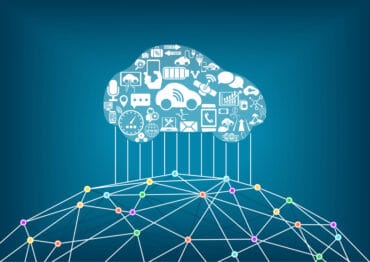
The power of ChatGPT comes with a huge responsibility of ensuring the content generated by the AI model is free from toxicity and bias.
ChatGPT has created ripples on the internet and has, since its launch, become the fastest-growing consumer application in history.
A go-to choice for individuals and businesses alike, the highly adaptable AI chatbot with a simple interface and a well-trained language model can handle everything from generating human-like responses, addressing queries, and analyzing data to customer care.
Now, business leaders, analysts, marketing enthusiasts as well as investors are looking for enterprise application use cases for ChatGPT and ways in which to harness the chatbot’s potential to streamline their activities faster and better.
Almost every big technology company is already working on some form of generative AI and is keeping an eye on the development and deployment of AI technology across use cases and industries. Earlier this year, Microsoft announced a premium version of its Teams collaboration application with AI-powered productivity. The intent is to make meetings more personalized, intelligent, and private/ protected, whether it’s one on one meetings, larger virtual appointments, or webinars. Google and its parent company, Alphabet, too, are making heavy investments in DeepMind and Bard.
But ChatGPT is currently considered at the top of the list and has undoubtedly become a chatbot sensation worldwide. With its versatility, contextual understanding, ability to learn, and natural communication, it has the potential to revolutionize the way we interact with intelligent AI systems.
See also: A Lot of Excitement About ChatGPT, But Be Wary
ChatGPT Use Cases Abound for Tech Companies
One of the many reasons it’s become the talk of the town is because consumers and businesses alike have discovered its many benefits. Right from providing quick responses to customer inquiries, creating compelling marketing copies, sorting unstructured data, assisting with research, analyzing customer sentiment, developing applications, and writing code to provide personalized recommendations based on target personas, overall, its benefits are immense. ChatGPT-like models can help provide better insights which can reshape business strategies and help companies make more informed decisions. While it has different use cases based on the industry for now, let’s dive in to find out some of the prominent use cases for the technology industry.
Data analytics
Cutting-edge conversational AI technology like GPT can help enterprises set themselves apart from competitors. By leveraging natural language processing or NLP ChatGPT can extract valuable insights from social media posts, feedback, reviews, etc., and help businesses understand their customers and analyze areas of their business that require attention. For example, text analysis is an important use case; by analyzing structured data along with an instruction prompt such as an Excel spreadsheet, ChatGPT can compare data and identify trends or patterns. The intelligent platform can be used to predict models, anticipate behaviors, analyze customer sentiment, and drive decisions around marketing, sales, and overall operations.
Classification
Similarly, ChatGPT can also help with classification tasks by using neural network architecture to understand your questions and provide accurate answers. It can be used for tasks such as topic classification, text-related tasks, and even sentiment analysis. Overall, ChatGPT helps gain an advantage by helping adapt to modern methods of text classification, including automated classification, deep learning capabilities, etc.
Programming
Another important technology use case is programming assistance and code-based use cases, which can help with software development. Some prominent examples are code conversion, translation, compression, debugging, and code completion. It can write code for simple, repetitive tasks such as database queries, data manipulation, etc.
Customer service
Because ChatGPT-like models are, first and foremost, conversational AI models, they can help businesses close the gap and challenges around customer service. The customer is king, and ChatGPT, with its multi-prompt bot, ensures that it keeps in mind the customers’ previous prompts or questions.
Cost reduction
Given the recent dry funding landscape, especially in the consumer technology and startup ecosystem, many businesses are cutting down on their employee base. In such a scenario, by implementing ChatGPT, companies can decrease their labor costs thanks to automation, enabling better efficiency, improving productivity, and therefore creating a competitive advantage.
Content creation
Large, medium, and small businesses alike have started using ChatGPT to generate large amounts of content in no time. The AI systems abilities help create everything from social media posts, blog articles, case studies, and a lot of other types of text as well as write formulas for Excel or Google Sheets, whether simple or intricate. In addition, ChatGPT-like models can also assist with translations, a major challenge for some businesses, including text and voice translation.
However, to reap the full benefits of ChatGPT, it makes sense to work with a provider that can help build tailor-made solutions based on the enterprises’ needs and requirements.
AI for Good
As the popular adage goes, “With great power comes great responsibility”; the power of ChatGPT comes with a huge responsibility of ensuring the content generated by the AI model is free from toxicity and bias. Many countries are now concerned about the ethical implications of the deployment and development of AI technology and building policy around it. For example, the UK wants companies developing AI to follow certain principles – to ensure safety and fairness and also ensure that companies are accountable and offer some sort of redressal. It’s also become important to set realistic expectations and invest in proper training models in tandem with human support. AI tools are not going anywhere. So, in the coming years, the focus is going to be on implementing responsible AI practices to protect against harmful content, plagiarism, mis-, and disinformation and maximize the potential of generative AI models.




























